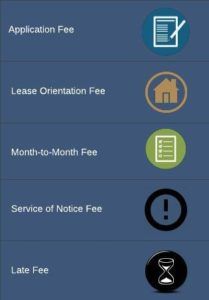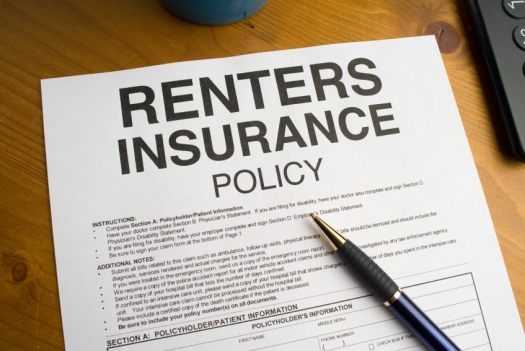
Below is a list of recommendations for tenants from an article by NOLO Press. (Click the link to read the full article and see respective offerings from NOLO.) Each has a short description from the article. In addition to that, we have added further commentary from JJR Holdings’ perspective.
The best way to win over a prospective landlord is to be prepared. To get a competitive edge over other applicants, bring the following when you meet the landlord: a completed rental application; written references from landlords, employers, and colleagues; and a current copy of your credit report.
JJR Holdings: Showing up with a completed rental application and any supporting documentation definitely helps to ease tenant screening and cut down decision making time. It also demonstrates that you are a responsible person.
How to Get a Copy of Your Credit Report
You can order your credit report by mail, phone, or online at www.annualcreditreport.com or directly from the websites of the three major national credit bureaus:
Equifax: www.equifax.com
Experian: www.experian.com
TransUnion: www.transunion.com
Carefully review all of the conditions of the tenancy before you sign on the dotted line. Your lease or rental agreement may contain a provision that you find unacceptable — for example, restrictions on guests, pets, design alterations, or running a home business.
JJR Holdings: We like to review each clause of the lease to ensure there are no misunderstandings on responsibilities on our side as the property manager or your side as the tenant.
To avoid disputes or misunderstandings with your landlord, get everything in writing. Keep copies of any correspondence and follow up an oral agreement with a letter, setting out your understandings. For example, if you ask your landlord to make repairs, put your request in writing and keep a copy for yourself. If the landlord agrees orally, send a letter confirming this.
JJR Holdings: We are set up to communicate via email, text, and telephone. We prefer to use email and text specifically for documentation purposes.
With regards to requesting repairs or maintenance, we have an online maintenance request form. All you have to do, as a tenant, is go to the form, fill out the information, and we will arrange for an appropriately quick remediation.
Next to disputes over rent or security deposits, one of the most common and emotion-filled misunderstandings arises over the tension between a landlord’s right to enter a rental unit and a tenant’s right to be left alone. If you understand your privacy rights (for example, the amount of notice your landlord must provide before entering), it will be easier to protect them.
JJR Holdings: We respect the privacy of our tenants and generally leave them alone. When we do need to enter a dwelling, we provide a minimum of 24 hours notice, unless it is an emergency or the tenant has requested an immediate visit.
In the event of contractor-provided services, such as air conditioner repair or pest control, the individual providers coordinate directly with you, the tenant, to arrange scheduling.
Know your rights to live in a habitable rental unit — and don’t give them up. The vast majority of landlords are required to offer their tenants livable premises, including adequate weatherproofing; heat, water, and electricity; and clean, sanitary, and structurally safe premises. If your rental unit is not kept in good repair, you have a number of options, ranging from withholding a portion of the rent, to paying for repairs and deducting the cost from your rent, to calling the building inspector (who may order the landlord to make repairs), to moving out without liability for your future rent.
JJR Holdings: We, as the property manager, strive to provide out tenants with a comfortable, habitable place to live. To do this, we take maintenance and repairs seriously and request that you, as the tenant, report all maintenance issues, as defined by our lease, to us immediately using the maintenance request form, mentioned above.
Keep communication open with your landlord. If there’s a problem — for example, if the landlord is slow to make repairs — talk it over to see if the issue can be resolved short of a nasty legal battle.
JJR Holdings: We encourage communication, even if it is only an email or text saying everything is hunky-dory.
Your landlord’s insurance policy will not cover your losses due to theft or damage. Renters’ insurance also covers you if you’re sued by someone who claims to have been injured in your rental due to your carelessness. Renters’ insurance typically costs $350 a year for a $50,000 policy that covers loss due to theft or damage caused by other people or natural disasters; if you don’t need that much coverage, there are cheaper policies. For more information about renters’ insurance, see this previous post on the subject.
JJR Holdings: While we don’t require tenants to hold renter’s insurance, we strongly urge it, as it protects you form damage and liability.
To protect yourself and avoid any misunderstandings, make sure your lease or rental agreement is clear on the use and refund of security deposits, including allowable deductions. When you move in, do a walk-through with the landlord to record existing damage to the premises on a move-in statement or checklist.
JJR Holdings: We use a move-in check list to document the condition of the rental as we go through it with the new tenant. We also document the whole property with video and save it, along with the check list, to ensure that we don’t forget about the condition of something when settling repairs against the tenant’s security deposit after move-out.
Learn whether your building and neighborhood are safe, and what you can expect your landlord to do about it if they aren’t. Get copies of any state or local laws that require safety devices such as deadbolts and window locks, check out the property’s vulnerability to intrusion by a criminal, and learn whether criminal incidents have already occurred on the property or nearby. If a crime is highly likely, your landlord may be obligated to take some steps to protect you.
JJR Holdings: We do our utmost to ensure our tenants’ safety. We provide deadbolts and/or a secondary locking mechanism for all doors on our properties.
Know when to fight an eviction notice — and when to move. If you feel the landlord is clearly is the wrong (for example, you haven’t received proper notice, the premises are uninhabitable), you may want to fight the eviction. But unless you have the law and provable facts on your side, fighting an eviction notice can be short-sighted. If you lose an eviction lawsuit, you may end up hundreds (even thousands) of dollars in debt, which will damage your credit rating and your ability to easily rent from future landlords.
JJR Holdings: We don’t like evictions and do our best to avoid them.











